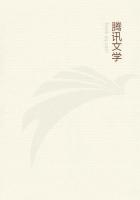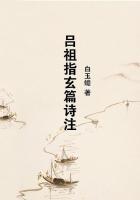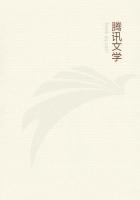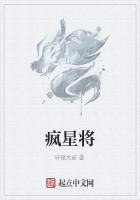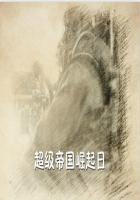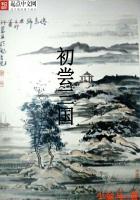Some of the earliest men were changed into stones, others into falcons, condors and other creatures which we know were totems in Peru. Probably this myth of metamorphosis was invented to account for the reverence paid to totems or pacarissas as the Peruvians called them. In Tiahuanaco, where the creation, or rather manufacture of men took place, the creator turned many sinners into stones. The sun was made in the shape of a man, and, as he soared into heaven, he called out in a friendly fashion to Manco Ccapac, the Ideal first Inca, "Look upon me as thy father, and worship me as thy father". In these fables the creator is called Pachyachachi, "Teacher of the world". According to Christoval, the creator and his sons were "eternal and unchangeable". Among the Canaris men descend from the survivor of the deluge, and a beautiful bird with the face of a woman, a siren in fact, but known better to ornithologists as a macaw. "The chief cause," says the good Christoval, "of these fables was ignorance of God." Rites and Laws of the Yncas, p. 4, Hakluyt Society, 1873.
The story, as told by Cieza de Leon, runs thus: A white man of great stature (in fact, "a magnified non-natural man") came into the world, and gave life to beasts and human beings. His name was Ticiviracocha, and he was called the Father of the Sun. There are likenesses of him in the temple, and he was regarded as a moral teacher. It was owing apparently to this benevolent being that four mysterious brothers and sisters emerged from a cave--Children of the Sun, fathers of the Incas, teachers of savage men. Their own conduct, however, was not exemplary, and they shut up in a hole in the earth the brother of whom they were jealous. This incident is even more common in the marchen or household tales than in the regular tribal or national myths of the world. The buried brother emerged again with wings, and "without doubt he must have been some devil," says honest Cieza de Leon. This brother was Manco Ccapac, the heroic ancestor of the Incas, and he turned his jealous brethren into stones. The whole tale is in the spirit illustrated by the wilder romances of the Popol Vuh.
Second Part of the Chronicles of Peru, p 5.
See Making of Religion, pp. 265-270. Name and God are much disputed.
The story of Joseph and the marchen of Jean de l'Ours are well-known examples.
Garcilasso gives three forms of this myth. According to "the old Inca," his maternal uncle, it was the sun which sent down two of his children, giving them a golden staff, which would sink into the ground at the place where they were to rest from wandering. It sank at Lake Titicaca. About the current myths Garcilasso says generally that they were "more like dreams" than straightforward stories; but, as he adds, the Greeks and Romans also "invented fables worthy to be laughed at, and in greater number than the Indians. The stories of one age of heathenism may be compared with those of the other, and in many points they will be found to agree." This critical position of Garcilasso's will be proved correct when we reach the myths of Greeks and Indo-Aryans. The myth as narrated north-east of Cuzco speaks of the four brothers and four sisters who came out of caves, and the caves in Inca times were panelled with gold and silver.
Athwart all these lower myths, survivals from the savage stage, comes what Garcilasso regards as the philosophical Inca belief in Pachacamac. This deity, to Garcilasso's mind, was purely spiritual: he had no image and dwelt in no temple; in fact, he is that very God whom the Spanish missionaries proclaimed. This view, though the fact has been doubted, was very probably held by the Amautas, or philosophical class in Peru. Cieza de Leon says "the name of this devil, Pachacamac, means creator of the world".
Garcilasso urges that Pachacamac was the animus mundi; that he did not "make the world," as Pund-jel and other savage demiurges made it, but that he was to the universe what the soul is to the body.
Com. Real., vol. i. p. 106.
Here we find ourselves, if among myths at all, among the myths of metaphysics--rational myths; that is, myths corresponding to our present stage of thought, and therefore intelligible to us.
Pachacamac "made the sun, and lightning, and thunder, and of these the sun was worshipped by the Incas". Garcilasso denies that the moon was worshipped. The reflections of the sceptical or monotheistic Inca, who declared that the sun, far from being a free agent, "seems like a thing held to its task," are reported by Garcilasso, and appear to prove that solar worship was giving way, in the minds of educated Peruvians, a hundred years before the arrival of Pizarro and Valverde with his missal.
Garcilasso, viii. 8, quoting Blas Valera.
From this summary it appears that the higher Peruvian religion had wrested to its service, and to the dynastic purposes of the Incas, a native myth of the familiar class, in which men come ready made out of holes in the ground. But in Peru we do not find nearly such abundance of other savage origin myths as will be proved to exist in the legends of Greeks and Indo-Aryans. The reason probably is that Peru left no native literature; the missionaries disdained stories of "devils," and Garcilasso's common sense and patriotism were alike revolted by the incidents of stories "more like dreams"than truthful records. He therefore was silent about them. In Greece and India, on the other hand, the native religious literature preserved myths of the ****** of man out of clay, of his birth from trees and stones, of the fashioning of things out of the fragments of mutilated gods and Titans, of the cosmic egg, of the rending and wounding of a personal heaven and a personal earth, of the fishing up from the waters of a tiny earth which grew greater, of the development of men out of beasts, with a dozen other such notions as are familiar to contemporary Bushmen, Australians, Digger Indians, and Cahrocs. But in Greece and India these ideas coexist with myths and religious beliefs as purely spiritual and metaphysical as the belief in the Pachacamac of Garcilasso and the Amautas of Peru.

